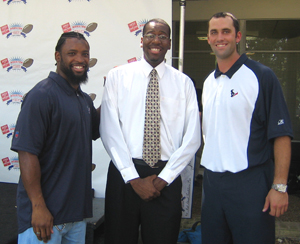by Beth Finke
A Wall Street Journal article (subscription only) this summer, titled “Erasing ‘Un’ From ‘Unemployable’ “, opens with a story about Harrison Mullinax, an 18-year-old in Anderson, SC who has autism.
“Unlike most who are autistic,” the article reads, “he now has a real job.”
The article goes on to talk about efforts to enable those with disabilities to hold regular jobs.
I am one of those people.
I am blind. I use a talking computer to do this “regular” job. As far as I know, I am the only blind woman in America being paid to moderate a blog.
The simple fact that I am employed at all puts me in a minority. A story in the New Standard titled “Unemployment, Poverty Higher for People with Disabilities” says only 38 percent of nearly 21.5 million people with disabilities between the ages of 21 and 64, or what is determined as “working-age,” are employed in the United States. That figure compares to just over 78 percent of people without disabilities.
Monday is Labor Day, and I’m celebrating Easter Seals’ efforts to make “real jobs” a reality for people with autism and other disabilities. Easter Seals provides job development and employment services in many geographic regions.
And Easter Seals is not alone. Other organizations are working to erase the “un” from “unemployable” when it comes to people with autism and other disabilities. APSE (formerly the Association for Persons in Supported Employment)Â is another resource. APSE and the Autism Society of America recently partnered to present a conference focusing on the employment needs of people with autism.
Also worth noting: the U.S. Business Leadership Network’s 10th Annual Conference, “Building the New Workforce — Inclusion and Innovation” is set for September 23 to 26 in Orlando. The national event is intended for business, community leaders and Business Leadership Network chapters that have an interest in hiring, retention and marketing to people with disabilities.
Don’t get me wrong — I’ll enjoy my day off! But like many people with disabilities, I look forward to getting back to work, too.
Happy Labor Day!







 The icing on the cake was the Houston Texans players –Â
The icing on the cake was the Houston Texans players –Â 